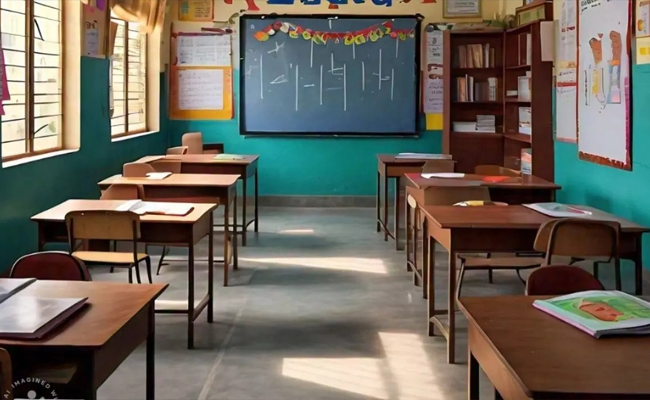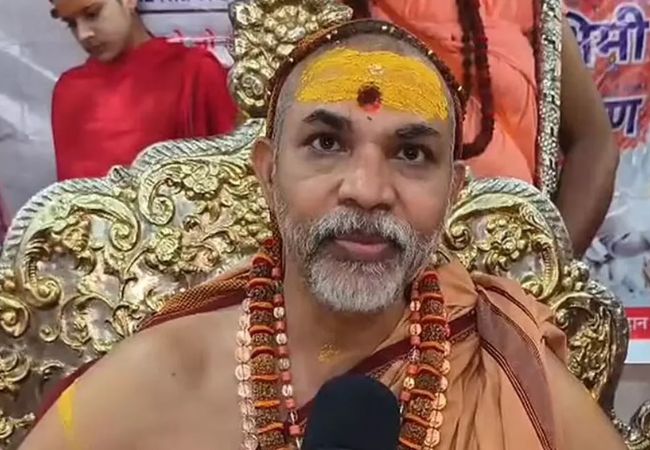Bengaluru: A significant portion of funds allocated for educational and welfare programs aimed at minority communities remains unspent by the Karnataka Minority Welfare Department, raising serious concerns about the implementation of these initiatives.
For the 2024-25 financial year, the government allocated Rs 2,517 crore for various minority welfare initiatives. However, by December, only Rs 1,400 crore had been released and just 816 crore spent. With 42% of the released funds still lying unspent, the Minority Welfare Department has failed to effectively utilize the funds, leading to setbacks in programs meant to support students and other beneficiaries.
Take for instance the Vidyasiri scholarship program, which was allocated Rs 24.99 crore to provide financial support to minority students. Out of this, Rs 18.74 crore was released by December 2, 2024. Shockingly, none of the released funds have been spent, and the department has simply held onto the money instead of distributing it to the intended beneficiaries.
Another crucial program meant to train minority students for competitive examinations also saw similar inefficiencies. The government had allocated Rs 17.15 crore for this initiative, with Rs 12.86 crore being released. However, by December 2, only Rs 6.31 crore had been spent, meaning that more than half of the available funds remained unused. The scholarship budget for minority students stood at Rs 100 crore, but Rs 46 crore of this allocation remained unspent.
Concerns over the lack of fund utilization were raised during a KDP meeting held on November 18, 2023, under the chairmanship of the Chief Secretary. Officials disclosed that both the central and state governments had failed to provide their share of funding for centrally sponsored minority welfare schemes. The state government had allocated Rs 83 crore for such programs, while the central government had promised Rs 100 crore. However, by the end of October, not a single rupee had been released from either side.
A similar situation was observed in the Pradhan Mantri Jan Vikas Programme, which is linked to the Minority Welfare Department. The state government had allocated Rs 83 crore for this scheme, with the Centre adding Rs 100 crore. However, by the end of October, none of these funds had been disbursed.
The lack of fund distribution has severely impacted various departmental schemes meant to benefit minority communities. A budget of Rs 160 crore had been set aside for scholarships and fee reimbursement, but by October, only Rs 2.29 crore had been released, and of this, merely Rs 0.10 crore had been spent. Similarly, Rs 110 crore was earmarked for community development projects, yet only Rs 1 crore had been released by October.
The situation was no different for financial assistance programs supporting MPhil and PhD students from minority backgrounds. Out of a budgeted Rs 6 crore, only Rs 2.33 crore was spent by the end of October. Fee refunds for students were also significantly delayed. Although Rs 25 crore was allocated for this purpose, not a single penny had been disbursed for six months, leaving thousands of students without reimbursement.
Maulana Azad School, which had been allocated Rs 68.29 crore for college maintenance and new hostel development, received Rs 43.55 crore. Out of this, Rs 35.38 crore was spent. Meanwhile, Rs 347.89 crore had been budgeted for the maintenance of hostels and residential schools, but only Rs 181.42 crore had been released by October, and only Rs 123.12 crore was utilized.
Poor fund utilization extended to economic assistance programs as well. Under the Shram Shakti Loan Scheme, which was meant to provide financial aid to 1,000 individuals, Rs 5 crore had been allocated. However, not a single rupee was distributed, despite an earlier expenditure of Rs 11.01 crore being recorded.
The continued failure to utilize funds effectively has affected thousands of beneficiaries, causing delays in scholarships, education programs, and financial aid. As the financial year nears its end, concerns are growing over the unspent funds and the impact on minority communities who rely on these government initiatives.
Let the Truth be known. If you read VB and like VB, please be a VB Supporter and Help us deliver the Truth to one and all.
Lucknow (PTI): The Uttar Pradesh Congress on Wednesday staged a statewide protest demanding a fair and transparent inquiry into the FIR lodged against Swami Avimukteshwaranand Saraswati and those who filed the complaint against him.
In a statement issued here, the party said memorandums addressed to Prime Minister Narendra Modi were submitted through district magistrates in all districts of the state.
Uttar Pradesh Congress spokesperson Manish Hindvi told PTI that the memorandums were handed over through the district administration in all 75 districts.
In the memorandum, the party alleged that Saraswati and his disciples were "unnecessarily harassed and humiliated" by police on the occasion of Amavasya and were prevented from taking a ritual bath (at the Magh Mela). It further alleged that some disciples were manhandled and taken to a police station.
The memorandum also claimed that an FIR was later registered against Saraswati, his disciple Swami Mukundanand Brahmachari and several unidentified persons in a sexual harassment case. It termed the case a "conspiracy" aimed at tarnishing the seer's reputation.
Citing Articles 25 and 26 of the Constitution, the memorandum stated that these provisions guarantee religious freedom and the right of religious denominations to manage their own affairs.
It described the position of shankaracharya held by Saraswati as "one of the highest spiritual posts in Sanatan tradition" and alleged that the entire episode appeared to have been "orchestrated in a planned manner".
"We request that the background of the persons who got the FIR registered be investigated in a transparent manner by a retired high court judge and strict action be taken against them," the memorandum said.
It also sought a "fair and transparent probe" into the allegations levelled against Saraswati so that the truth could be established.
Earlier, Uttar Pradesh Congress president Ajay Rai had told reporters in Varanasi after meeting Saraswati that the party stood firmly with him.
The Congress said it would continue to press for an impartial inquiry into the entire episode.
On February 21, an FIR was lodged in Prayagraj against Saraswati and his disciple Mukundanand Brahmachari on charges of sexually abusing two persons, including a minor, over the past year at a gurukul and religious congregations, including the recently concluded Magh Mela.
Days after he was booked, Saraswati had said on Monday that he would not oppose his arrest and asserted that the "fabricated story" would be exposed sooner or later.
At a press conference on Wednesday, Saraswati alleged that criminals rule in Uttar Pradesh, level allegations and influence investigations, as he denied having any contact with the two persons for whose alleged sexual abuse he has been booked.



_vb_77.jpeg)
_vb_00.jpeg)
